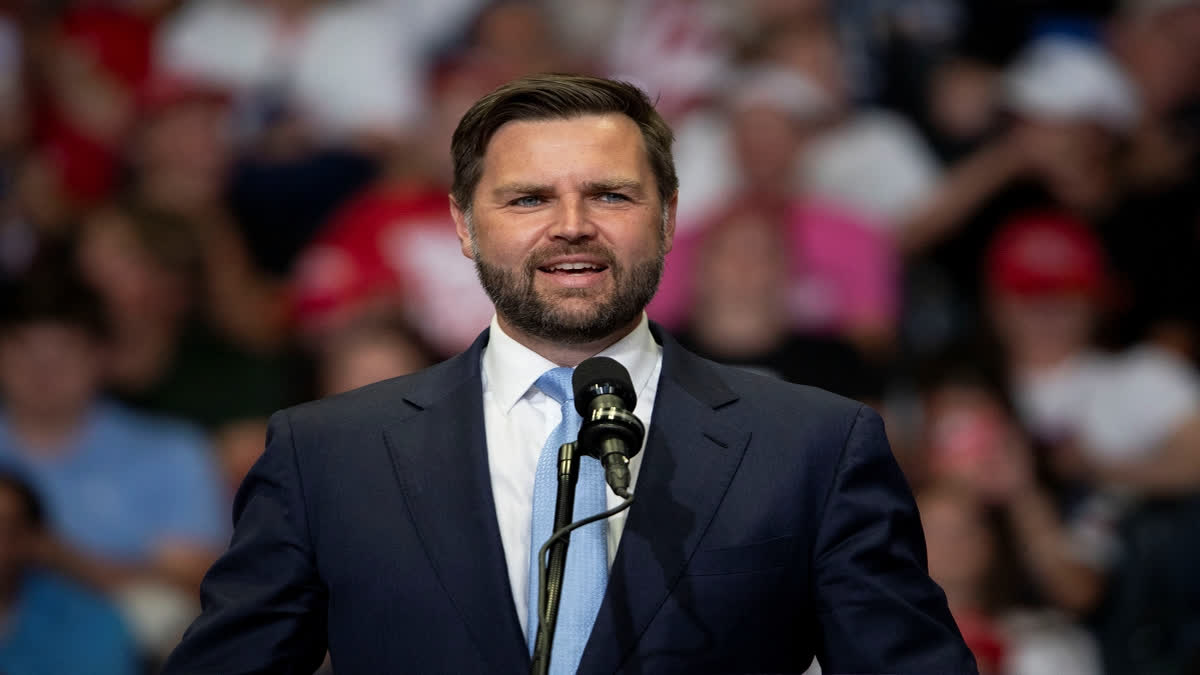With an underwhelming social media post announcing his Vice-President pick amidst the Republican National Convention in Milwaukee, the presidential nominee Donald Trump has sent a clear signal about the future of the GOP.
Trump's VP running mate, J D Vance, the Ohio Senator, is a loyalist and a leading light of the post-liberal, populist right. Breaking away from the Reaganite Republican establishment's agenda of free trade, deregulation, tax cuts, and a small state, Vance has chosen to throw his lot with the ascendant populist, illiberal wing of the party with Trump as the charismatic figurehead.
Emerging from a working-class background, Vance has ambitiously navigated the power corridors of Washington: first as the darling of the elite, liberal establishment as an anti-Trump diagnostician of the ailing white working class and now as a populist, MAGA representative of that same aggrieved white working class.
Vance's populist raging against the establishment might seem incommensurate with his own firm moorings in the American elite circle with the Yale Law School and Silicon Valley pedigrees. His tendency to take extreme right-wing positions has also warranted criticism. But even the critics admit the Ohio Senator's intellectual acumen and his willingness to forge issue-based coalitions with the populist left makes him a valuable player in a fractured political landscape. As a young and talented politician, Vance is a crucial actor in the remaking of the Republican party and, consequently, the American democracy. With Trump leading in polls and the Democrats in disarray, Vance's potential role as the Vice President warrants attention to his foreign policy platform.
In line with a break away from the post-Cold War Republican consensus on economic globalisation and muscular neoconservatism, Vance champions economic nationalism and a restrained foreign policy. A searing critique of the erstwhile elite paradigm serves as the starting point for the post-liberal right-wing reimagination of US politics and policy.
The neocons are held responsible for wasting the American treasury and blood on unnecessary wars abroad; neoliberal globalisation is faulted for the atrophying of the industrial base, the suppression of the labour power, and ensuing working-class precarity. Apart from the incessant domestic cultural wars, the populist, postliberal Right that Vance represents is also obsessed with a hardline approach towards border security to deal with drug smuggling and illegal immigration.
Vance's preferred foreign policy agenda includes a tough approach towards China, calls for greater burden sharing on the part of European partners, shoring up of East Asian allies including Taiwan, and a protectionist trade policy as well as dollar devaluation in service of US export competitiveness. It would be a mistake to label Vance's foreign policy approach as isolationist due to his repeated calls for the US to agree to a negotiated settlement in Ukraine.
Noticeably, Vance self-consciously locates his MAGA brand of political posturing in the Jacksonian lineage. However, Vance's adherence to the Jacksonian nationalist approach of bluntly deploying force sits uneasily with his self-professed embrace of realism, which emphasises prudence.
Beyond the overarching foreign policy framework, in concrete terms, his proposed solution for Ukraine includes a freeze of the current territorial status quo, guaranteeing both Kyiv's independence and neutrality and a long-term American security guarantee.
On the Taiwan question, Vance agrees with the deterrence by denial approach to make sure the invasion does not happen in the first place. A staunch supporter of Israel and an Iran Hawk, Vance's position on the Middle East mostly resembles that of Donald Trump, including opposition to unnecessary military intervention and favouring of the Abraham Accords approach. While some see his call against military interventions as a sign of restraint, others interpret his Middle East policy in terms of continuation of the American grand strategy of primacy in the region.
It is too early to tell the potential impact of VP Vance on the Trump administration's foreign policy should they win the November election. However, Trump's erratic approach and low attention span may potentially provide a window for an energetic and cerebral Vance to be in the driver's seat and execute the agenda more effectively.
From the Indian perspective, closer attention to the Asian theatre may translate into a better synergy between Washington and New Delhi. However, Vance's protectionist economic populism, with its emphasis on tariffs, onshoring, and the dollar devaluation, may not sit well with India's own ambition to spur manufacturing.
It also remains to be seen whether Vance and the Trump presidency will continue with the ambitious emerging technology cooperation with India under the iCET initiative. In any case, New Delhi has little option but to work with a US foreign policy executive that receives the democratic mandate in the ongoing electoral contest.
(Disclaimer: The opinions expressed in this article are those of the authors. The facts and opinions expressed here do not reflect the views of ETV Bharat)



